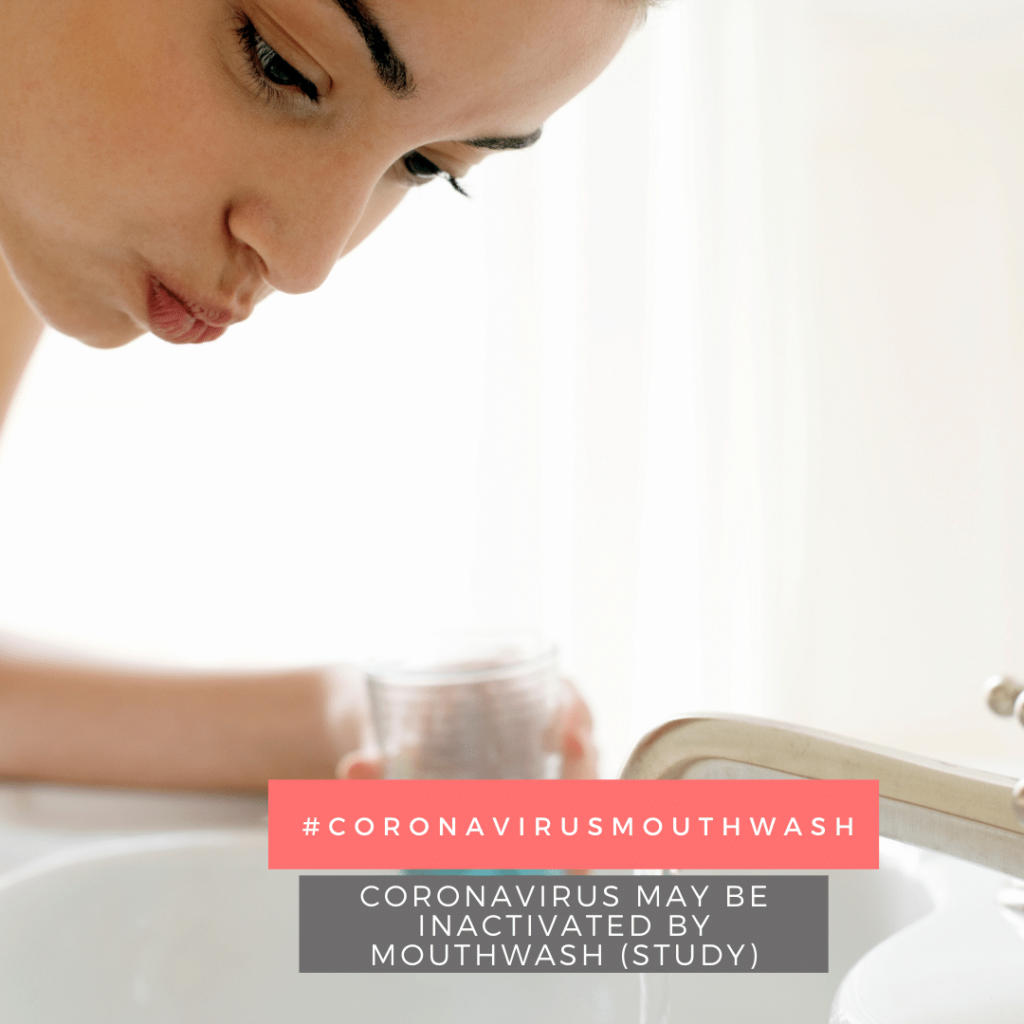This might be a reason for people to hoard Listerine mouthwash.

The human coronavirus was inactivated by mouthwash according to a recent study conducted by researchers from the Penn State College of Medicine. The results of the study were found in the Journal of Medical Virology.
The Coronavirus Mouthwash Study
The researchers used various brands of oral and nasopharyngeal rinses. This includes a neti pot, sore-mouth cleansers, mouthwashes, and a 1% solution of baby shampoo.
The goal of the test is to know how they can inactivate human coronaviruses.
The study showed that the baby shampoo solution was found to be effective in inactivating more than 99.9% of human coronavirus. This solution is commonly used by ENTs to rinse the sinuses.
In addition to baby shampoo solution, oral and mouthwash rinses were also effective. They inactivated more than 99.9% of the virus.
The nasal and oral cavities are believed to be the main access points of human coronaviruses. However, the study didn’t test SARS-CoV-2 or COVID-19 specifically.
However, the novel virus is similar to other human coronaviruses tested. Because of the similarities, the researchers stated that the results would be the same.
During the study, the researchers mixed human coronavirus with antiseptic rinses, baby shampoo solutions, and different brands of mouthwash.
They allowed the solutions to eliminate the virus for different periods. The researchers diluted the solutions to further inactivate the virus.
The researchers used cultured human cells to know how much virus has been inactivated. They allowed the diluted solutions to interact with the cultured cells before counting the cells remaining alive after a few days of being exposed to the solution.
The lead author stated that the results did show that the viral load in an infected mouth could be reduced by simply using OTC products. This may help in reducing the spread of COVID-19.
Read: Fitness Influencer Who Said Coronavirus is Hoax Died of the Virus
All of us are waiting for the vaccine to be finalized. Because of that, anything that can help in reducing transmissions could be helpful.
The study included products that can be easily accessed by anyone. It’s being used by many in their daily routines.
Additional studies may be needed to know if these solutions or OTC products could indeed reduce the virus present in patients already suffering from COVID-19.
It may help in reducing the amount of the virus in the patient’s mouth, thereby, reducing the spread of the virus as they cough, sneeze, or talk.
These solutions could still make a major impact in the fight against the novel virus even if it’s just 50%.
Read: US President Donald Trump Received an Experimental Drug for Coronavirus
Will Alcoholic Drinks Offer the Same Effects?
After the study has been published, many people are now wondering whether or not bars are now allowed to open considering that liquors contain, well, alcohol.
Alcoholic drinks contain a type of alcohol known as ethanol. It’s a type of alcohol that’s included in hand sanitizers and rubbing alcohol. That’s why many people think that vodka could be used as a disinfectant.
Theoretically, it could have the same effect as mouthwash and oral rinses. But CDC didn’t mention anything about vodka and other alcoholic drinks to be used as a disinfectant.
Remember that the study allowed the solutions to be mixed with the infected cells for 30 seconds or more. If an alcoholic drink is your last resort, you need to let it stay in your mouth for more than 30 seconds to be effective.
So, Should You Start Buying Mouthwash and Oral Rinses?
Not so fast. Take note that the study didn’t specifically test COVID-19. It only stated human coronavirus.
Then again, if Listerine mouthwash is part of your daily oral routine, then you must continue doing.
Speak Now ... Or Forever Hold Your Peace